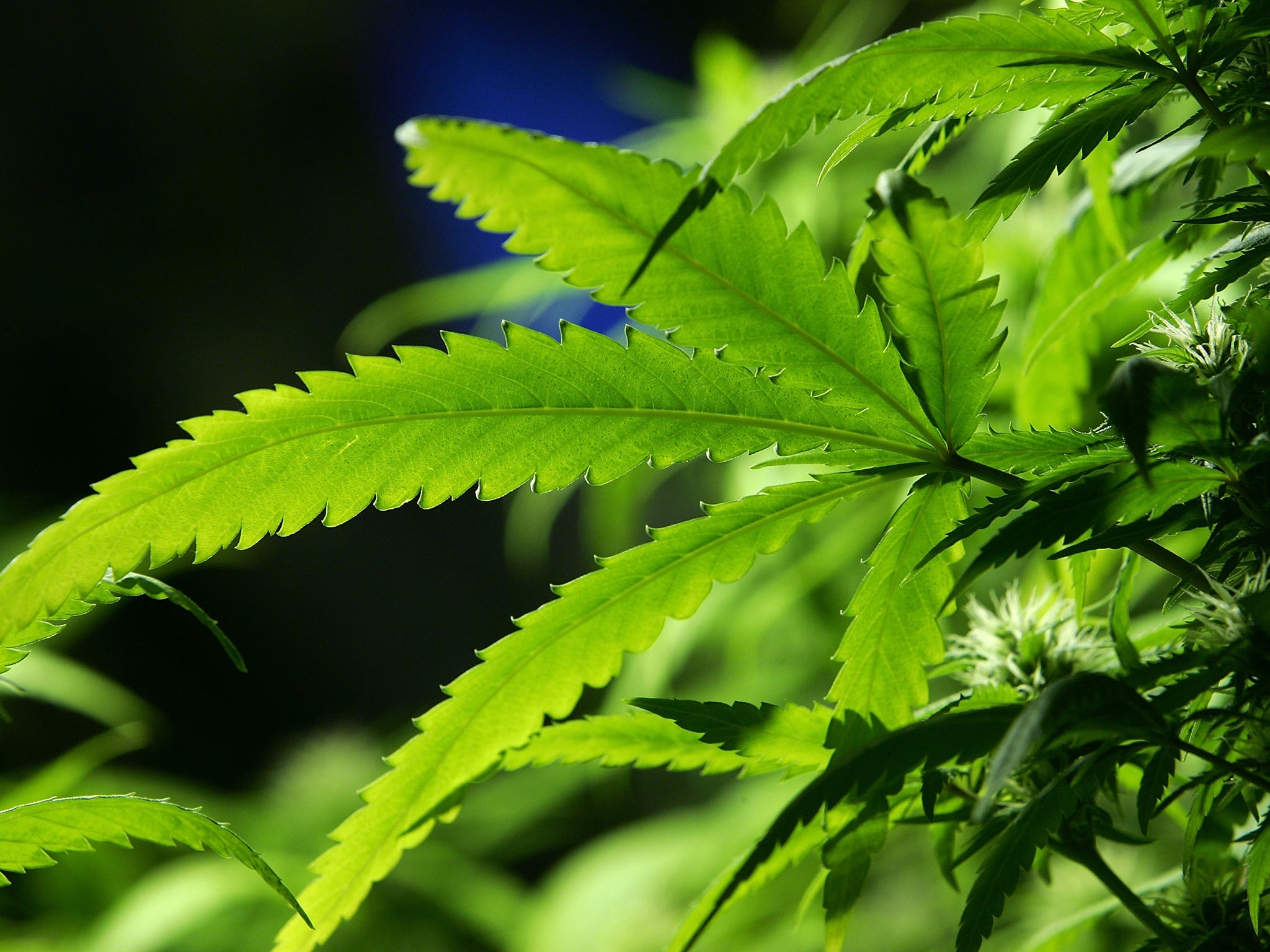Your support helps us to tell the story
From reproductive rights to climate change to Big Tech, The Independent is on the ground when the story is developing. Whether it's investigating the financials of Elon Musk's pro-Trump PAC or producing our latest documentary, 'The A Word', which shines a light on the American women fighting for reproductive rights, we know how important it is to parse out the facts from the messaging.
At such a critical moment in US history, we need reporters on the ground. Your donation allows us to keep sending journalists to speak to both sides of the story.
The Independent is trusted by Americans across the entire political spectrum. And unlike many other quality news outlets, we choose not to lock Americans out of our reporting and analysis with paywalls. We believe quality journalism should be available to everyone, paid for by those who can afford it.
Your support makes all the difference.Parliament will debate the legalisation of cannabis next month, House of Commons authorities have announced.
MPs will consider a proposal to make the “production, sale and use of cannabis legal” on Monday 12 October.
The debate will be held in response to an official petition on the Parliament website that has received over 211,000 signatures as of early September.
The debate will be led by left-wing Labour MP Paul Flynn, a member of Parliament’s petitions committee.

Mr Flynn has previously called for the legalisation of cannabis for medical use, introducing bills in 1999 and supporting another in concert with Lib Dem MP Tom Brake in 2008.
Next month’s debate is unlikely to lead to any change in the law, though it could put pressure on the Government to act.
The Government’s official response to the petition was negative. It read: “Substantial scientific evidence shows cannabis is a harmful drug that can damage human health. There are no plans to legalise cannabis as it would not address the harm to individuals and communities.”
It said legalisation would “send the wrong message”.
However a study published this summer in the US found that cannabis users were no more likely than normal to suffer mental health problems including depression, psychosis, or asthma.
While many countries across the developed world have moved to legalise or decriminalise cannabis use, the UK has moved to tighten restrictions on it in recent years.
In 2009 the last Labour government moved its classification back to a Class B drug, meaning anyone caught possessing it can be sent to prison for five years, while anyone who supplies it can be imprisoned for 14 years.

Join our commenting forum
Join thought-provoking conversations, follow other Independent readers and see their replies
Comments